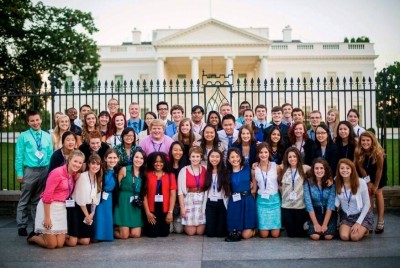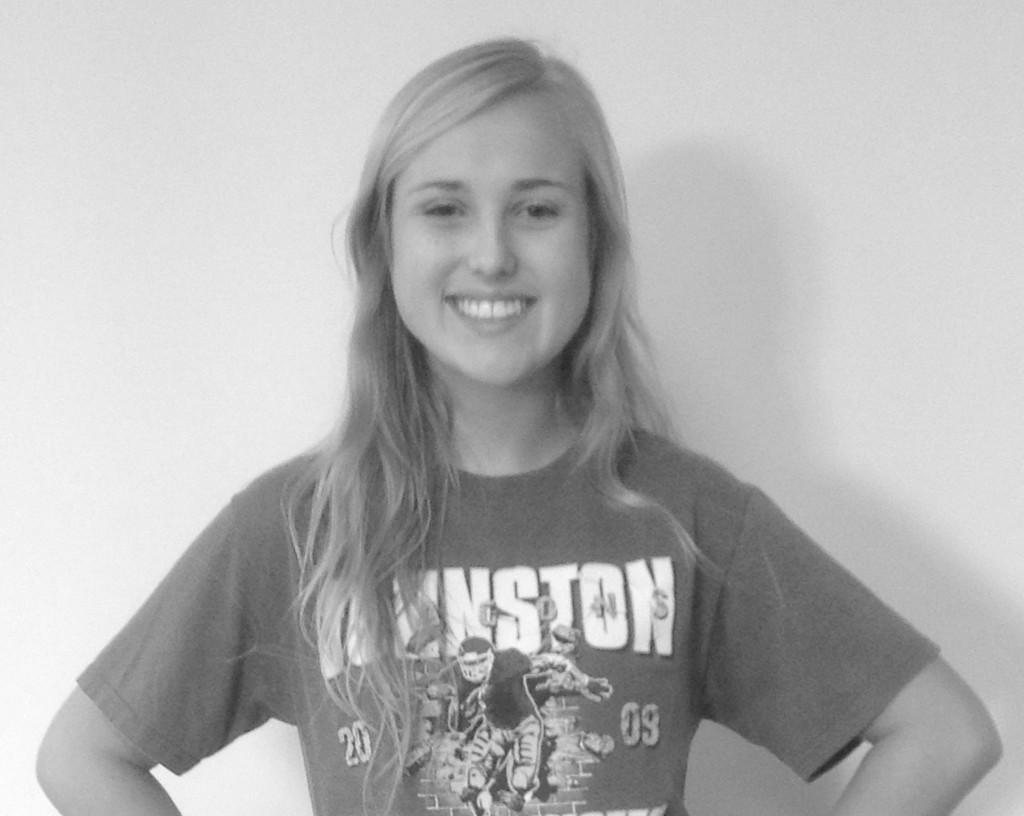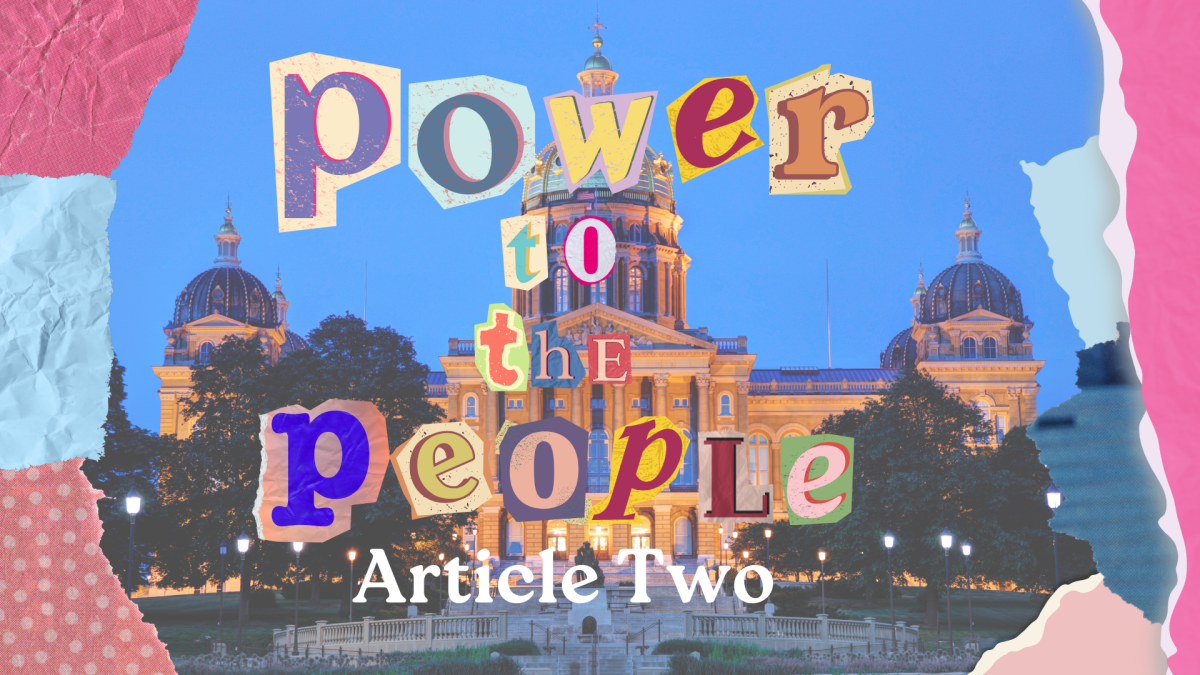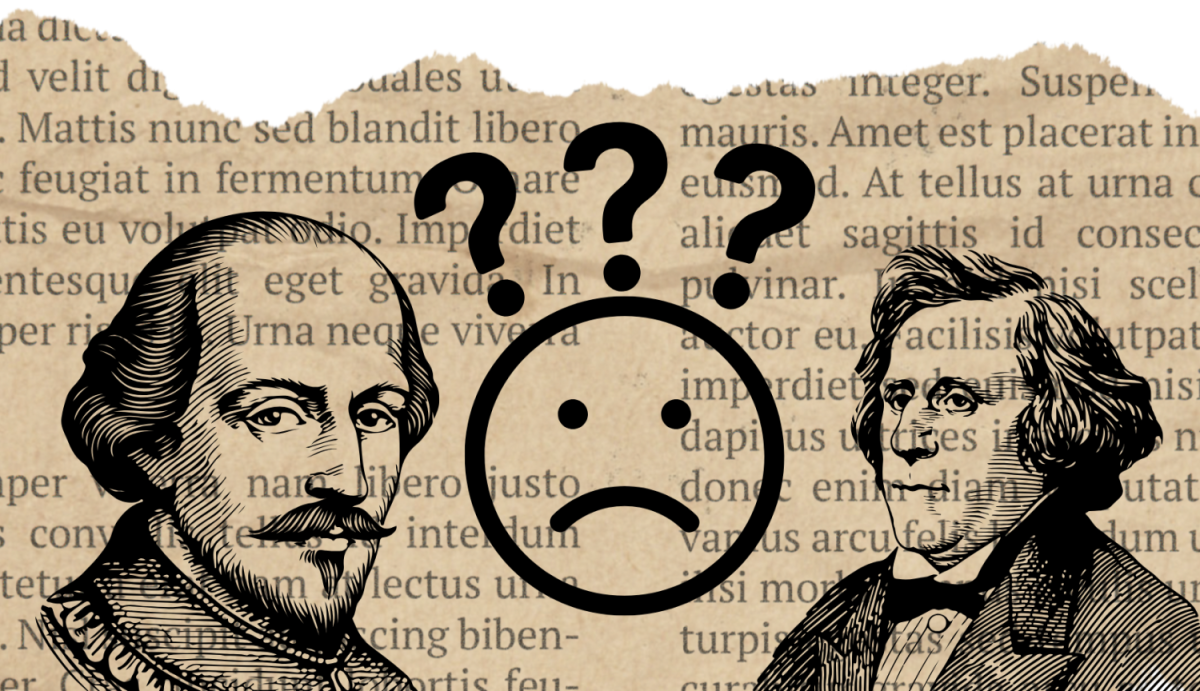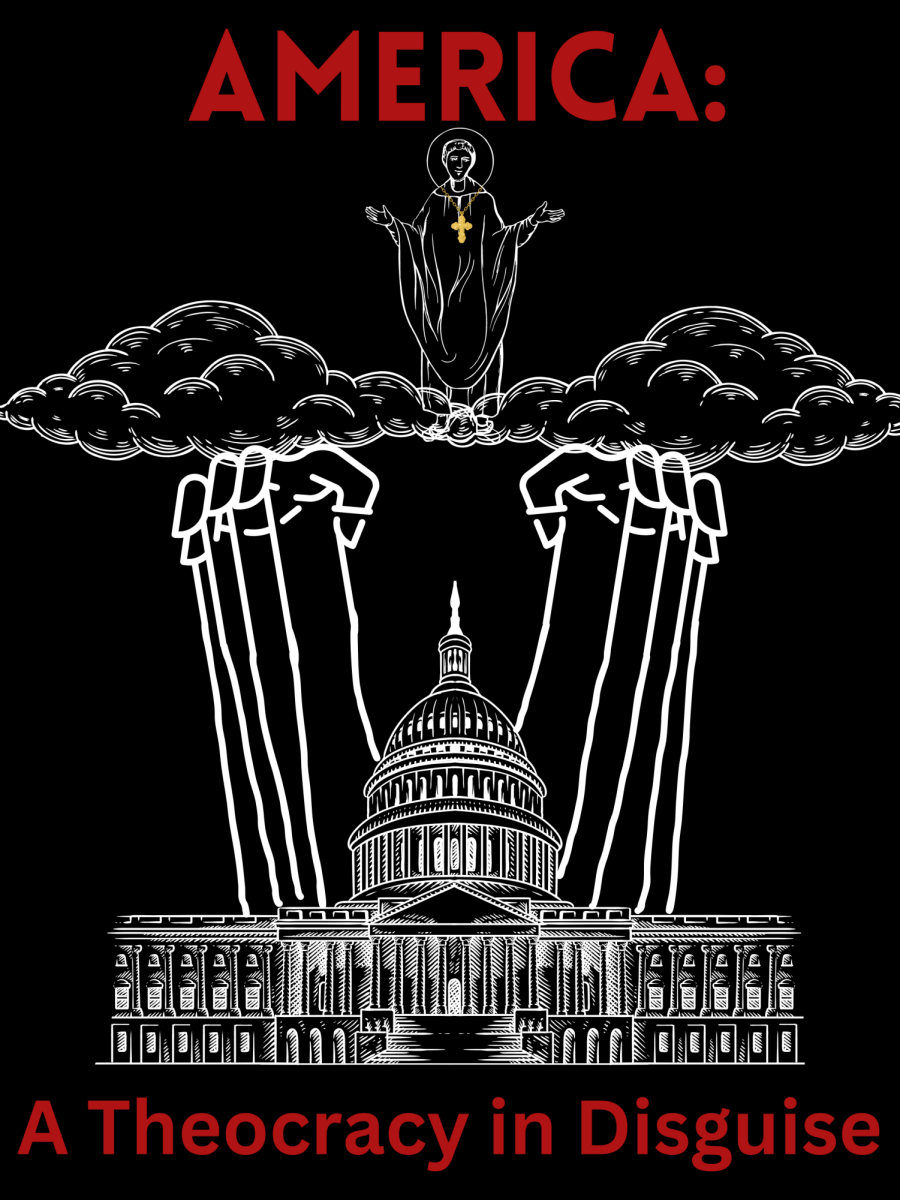Lying in bed at 1 a.m., I toss and turn consumed with thoughts of my final paragraph to my essay of why I want to be a journalist. I should be sleeping, I have a French test tomorrow and a meeting after school, but all I can focus on is where the commas should go and another way to phrase the words “free spirit.” At school the next day I turn into a walking zombie, half-asleep and still fixated on one essay.
Scholarships are not always easy to apply to. Yet, the ones that turn you into a walking zombie or cause you to toss and turn at night tend to be the ones that have the best odds and best benefits. That describes the Al Neuharth Free Spirit Scholarship I applied for last year as a junior. The organization selects one winner from each state and sends them to learn about the First Amendment in Washington, D.C. for a week in July before the senior year.
“[Scholarships] are a chance, an opportunity, to display your work ethic and your willingness to grasp for the golden egg,” guidance counselor Curt Larkin said. “Sometimes you don’t get rewarded for that except in the path, the path of getting the accomplishment, of putting in the time, the effort, the dedication, the sacrifice, the resiliency, that intrinsic value cannot be replaced. And the people that gain that whether they get money, recognition or nothing, are the people that are more successful down the road- always, 100% of the time.”
When you apply to the unattractive scholarships full of work, you are up against maybe only a handful of kids.
The Polk County Farm Bureau has two $2,000 scholarships ear-marked for Johnston High School students interested in agriculture or an agriculture related industry. Amanda McOrder went to Iowa State University for business. She applied as a senior to this scholarship. Only two students applied. “[The Farm Bureau] rationalized, she’s going to Iowa State it’s an agricultural school it’s close enough. They want to give the money but if she hadn’t applied they’d have only been able to give one,” Larkin said.
My roommate from Maine (who was awesome) was the only person who applied to the scholarship from her state. Her English teacher approached her with the application, mentioning that there was no Maine applicant. She does not plan on joining the journalism field, and she is not officially on the newspaper staff. Yet, she has written some newspaper articles and decided to go for it- and earned it.
“Unless you are explicitly exempt you should look at it and seriously consider: Could you meet some of their criteria in some way, in some fashion that might be appealing to them?” Larkin said. “Then apply.”
After all my hard work I won the Free Spirit Scholarship for Iowa. It was a $1,000 scholarship for one student from each state planning on going into a journalism career. During the mandatory, all-expenses-paid trip to Washington D.C., we met important people in the media world and some other free spirits not necessarily in the journalism field. The application consisted of two essays, three of my journalistic works, two recommendations, my transcript and a few other personal information questions.
I considered not applying about halfway through the process. If I had quit then I would not have had an amazing experience, have met some life-long friends or have a free $1,000 for college.
“Why would anyone do something that required anywhere from minimal to extensive work, ethic, time, energy, sacrifice, for the chance of potentially nothing?” Larkin said. ” Because there is a chance, an opportunity. At the same time, the greatest risk also produces the greatest rewards.”
Now, all of us “free spirits” keep in touch through a Facebook page where we can post journalistic inspiration or just mushy I-miss-you’s. My closest friends from the conference send a text every once in a while or a silly Snapchat. My roommates, Maine and Louisiana, are discussing a trip to New York City this summer just to see each other again. All of us “free spirits” plan to reunion in the future.
Johnston alum Katie Giles also applied for an extensive scholarship, the Presidential Scholarship at the University of Iowa, which covers room, board and tuition for four years. After working hours on her application, Giles was awarded the scholarship and now attends the university, essentially for free.
“It’s definitely worth it,” Giles said. “I calculated it out and if I spent two or three hours on a scholarship and I got a $1,000 scholarship because of it, that’s more than working two or three hours [at] a summer job.” Giles applied for 12 scholarships and received seven of them.
“Don’t do more work than you have to,” she said. “I reused a lot of the same stuff. I made one activity sheet, I wrote my first essay and then you modify (them) slightly each time to fit it in the different formats, and definitely give your letter of recommendation [writers] lots of time with an information sheet.”
I currently am cramming applications into my full schedule and I encourage all students to do so, too.
“The scholarship process is out there for a lot of different reasons,” Larkin said. “And it’s out there. The sad part is a very small percentage actually take advantage of it… It still comes back to, if you have to have something concretely guaranteed for your effort from someone else, you’re very limited in what sort of success you can have as an individual by yourself. If you are willing to gain stuff without a guarantee and risk it, you’re going to gain a lot more in the end.”

